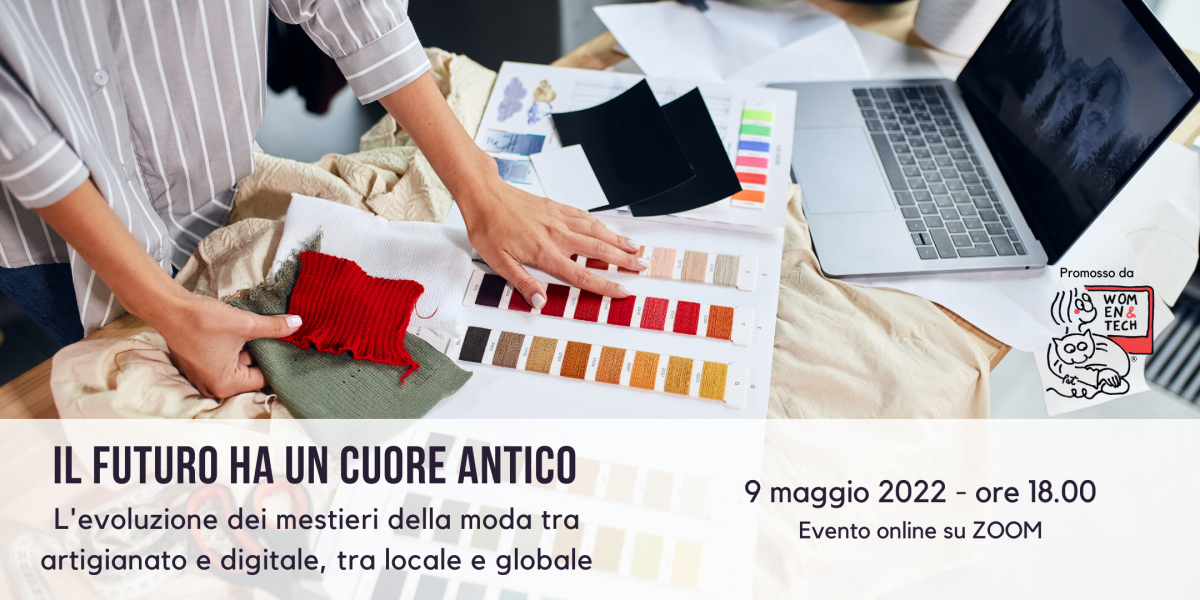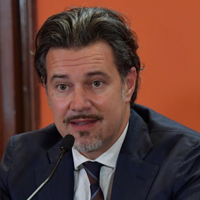
The evolution of fashion professions between craftsmanship and digital, between local and global.
Online Zoom Event - May 9, 2022 at 6:00 PM
As in every sector, the pandemic has also accelerated digitalization in the Fashion Made in Italy industry. We have come up with digital Fashion Weeks and virtual Show Rooms, which have helped rediscover and give visibility to a local dimension, to the "genius loci", to enhance Made in Italy, which is the true "brand" of the SMEs that make up the Italian productive fabric. This breeding ground between creativity and necessity has produced and is producing powerful synergies and projects that have given great visibility and internationality to the Fashion Made in Italy sector produced by SMEs and artisans, representing about 40% of the turnover of Fashion Made in Italy.
The future has an ancient heart: it is now evident that the jobs of the future will be characterized by a mix of artisanal and digital skills. The "know-how" of artisans, manufacturing skills combined with new technological knowledge will be, already are, an increasingly competitive lever for the excellence of the Italian industry. It is said that the makers, the new digital artisans will be the ones who will change fashion: how widespread is this awareness and how much can it make a difference in Made in Italy and in the economic development of the territory?
In the next 5 years, it is estimated that "the new talents of doing" needed in the fashion industry will be almost 100,000. But what has been done and what can still be done to transform the figure of the artisan into the profession of tomorrow? To equip small and medium-sized enterprises for change? Training, upskilling and updating, mismatch between school and the world of professions.
The development of this promising frontier is unthinkable and anachronistic if it does not proceed hand in hand with a focus on the human side, capitalizing on a great commitment in the field of sustainability, inclusivity, and diversity. Also because the new generations of workers and consumers are very sensitive to these issues. What is the awareness and what is being done to nurture it?



